
THE ROUTLEDGE COMPANION TO VIDEO GAME STUDIES
The number of publications dealing with video game studies has exploded over the course of the last decade, but the field has produced few comprehensive reference works. The Routledge Companion to Video Game Studies, compiled by well-known video game scholars Mark J. P. Wolf and Bernard Perron, aims to address the ongoing theoretical and methodological development of game studies, providing students, scholars, and game designers with a definitive look at contemporary video game studies. Features include:
new perspectives on video games both as art form and cultural phenomenon;
explorations of the technical and creative dimensions of video games;
accounts of the political, social, and cultural dynamics of video games;
comprehensive and interdisciplinary models and approaches for analyzing video games.
Each essay provides a lively and succinct summary of its target area, quickly bringing the reader up-to-date on the pertinent issues surrounding each aspect of the field, including references for further reading. Together, they provide an overview of the present state of game studies that will undoubtedly prove invaluable to student, scholar, and designer alike.
Contributors: Espen Aarseth, Jessica Aldred, Dominic Arsenault, Andrew Baerg, Robert Alan Brookey, Andrew Burn, Frdrique Clment, Mia Consalvo, Simon Dor, Joris Dormans, Anna Everett, Richard E. Ferdig, Clara Fernndez-Vara, Robert Furze, Seth Giddings, Andreas Gregersen, Mark Grimshaw, Louis-Martin Guay, Christopher Hanson, Mark Hayse, Carrie Heeter, Robin Johnson, Daniel Joseph, Rune Klevjer, Lee Knuttila, Carly A. Kocurek, Peter Krapp, Lori Landay, Julia G. Raz, Andras Lukacs, Vincent Mauger, Frans Myr, Sheila C. Murphy, David Myers, Michael Z. Newman, Simon Niedenthal, Michael Nitsche, Christopher A. Paul, Bernard Perron, Martin Picard, Richard Rouse III, Kevin Schut, Bobby Schweizer, John Sharp, Marko Siitonen, Olli Sotamaa, Grant Tavinor, Carl Therrien, Michael Thomasson, John Vanderhoef, Gerald Voorhees, Karin Wenz, Emma Witkowski, and Mark J. P. Wolf.
THE ROUTLEDGE COMPANION TO VIDEO GAME STUDIES
Edited by
Mark J. P. Wolf and Bernard Perron

First published 2014
by Routledge
711 Third Avenue, New York, NY 10017
and by Routledge
2 Park Square, Milton Park, Abingdon, Oxon OX14 4RN
Routledge is an imprint of the Taylor & Francis Group, an informa business
2014 Taylor & Francis
The right of the Mark J. P. Wolf and Bernard Perron to be identified as the author of the editorial material, and of the authors for their individual chapters, has been asserted in accordance with sections 77 and 78 of the Copyright, Designs and Patents Act 1988.
All rights reserved. No part of this book may be reprinted or reproduced or utilized in any form or by any electronic, mechanical, or other means, now known or hereafter invented, including photocopying and recording, or in any information storage or retrieval system, without permission in writing from the publishers.
Trademark notice: Product or corporate names may be trademarks or registered trademarks, and are used only for identification and explanation without intent to infringe.
Library of Congress Cataloging in Publication Data
The Routledge companion to video game studies / edited by Mark J. P. Wolf and Bernard Perron.
pages cm.(Routledge companions)
Includes bibliographical references and index.
1. Video games. 2. Video gamesSocial aspects. I. Wolf, Mark J. P. II. Perron, Bernard.
GV1469.3.R67 2013
794.8dc23
2013021954
ISBN: 9780415533324 (hbk)
ISBN: 9780203114261 (ebk)
Typeset in Goudy
by Swales & Willis, Exeter, Devon, UK
CONTENTS
PART I
Technological Aspects
OLLI SOTAMAA
ROBIN JOHNSON
SHEILA C. MURPHY
SIMON DOR
VINCENT MAUGER
BOBBY SCHWEIZER
MARK J. P. WOLF
PART II
Formal Aspects
GRANT TAVINOR
SIMON NIEDENTHAL
BERNARD PERRON
RICHARD ROUSE III
JOHN SHARP
MARTIN PICARD
JOHN SHARP
MARK GRIMSHAW
MARK J. P. WOLF
PART III
Playfulness Aspects
JULIA G. RAZ
ROBERT FURZE
MIA CONSALVO
EMMA WITKOWSKI
MARKO SIITONEN
LORI LANDAY
ESPEN AARSETH
LOUIS-MARTIN GUAY
FRDRIC CLMENT
CHRISTOPHER HANSON
DANIEL JOSEPH AND LEE KNUTTILA
PART IV
Generic Aspects
DOMINIC ARSENAULT
CLARA FERNNDEZ-VARA
ANDREW BURN
GERALD VOORHEES
SETH GIDDINGS
ANDREW BAERG
SIMON DOR
PART V
Cultural Aspects
ROBERT ALAN BROOKEY
FRANS MYR
RUNE KLEVJER
KARIN WENZ
RICHARD E. FERDIG
KEVIN SCHUT
DAVID MYERS
MICHAEL THOMASSON
PETER KRAPP
PART VI
Sociological Aspects
JESSICA ALDRED
CARLY A. KOCUREK
CARRIE HEETER
MICHAEL Z. NEWMAN AND JOHN VANDERHOEF
MICHAEL NITSCHE
ANNA EVERETT
ANDRAS LUKACS
PART VII
Philosophical Aspects
ANDREAS GREGERSEN
JORIS DORMANS
GRANT TAVINOR
MARK HAYSE
CARL THERRIEN
CHRISTOPHER A. PAUL
MARK HAYSE
DOMINIC ARSENAULT
ESPEN AARSETH
MARK HAYSE
Espen Aarseth is Principal Researcher at the Center for Computer Games Research, IT University of Copenhagen. From 1996, Aarseth was Associate Professor, and from 2002, Professor at the Department of Humanistic Informatics at the University of Bergen, which he co-founded. He holds a Cand. Philol. in comparative literature and a Dr. Art. in humanistic informatics, both from the University of Bergen. He has published research on digital power and democracy, science fiction and cyberpunk, digital media, digital literature, humanistic informatics, games and narrative, women and gaming, game ontology, games and crossmedia, game addiction, and mobile games. He is also co-founding Editor-in-Chief of the journal Game Studies, founder of the Digital Arts and Culture conference series, and co-founder of the following conferences: Philosophy of Computer Games, The History of Games, and Games and Literary Theory, as well as author of Cybertext: Perspectives on Ergodic Literature (Johns Hopkins University Press, 1997), a comparative media theory of games and other aesthetic forms. [aarseth@itu.dk]
Jessica Aldred is a postdoctoral research fellow at the Universit de Montral, where she holds a grant from Canadas Social Sciences and Humanities Research Council. Jessicas research focuses upon digital character animation, the growing intersections between cinema and video games in the age of media convergence, and what is at stake when characters are translated from cinema into digital games. Her work has been published in Animation, An Interdisciplinary Journal, Games and Culture, and The Oxford Handbook for Sound and Image in Digital Media (Oxford University Press, 2013). [jessica.aldred@gmail.com]
Dominic Arsenault is Assistant Professor of Film Studies at the Universit de Montral. He researches, presents, lectures, and publishes on video game narration and design, fictional and systemic immersion, video game history and music, and genres. His work has appeared in journals such as Eludamos and Loading, and as essays in The Video Game Theory Reader 2 (Routledge, 2008) and The Video Game Explosion (Greenwood Press, 2007). His current research interests revolve around the visual treatment of space in games, graphical technologies, and innovation. He is working on monographs on the Super NES and on the cultural affinities between heavy metal and video games, as well as in collaborative storytelling practices and transmedial storytelling. [dominic.arsenault@umontreal.ca]
Next page

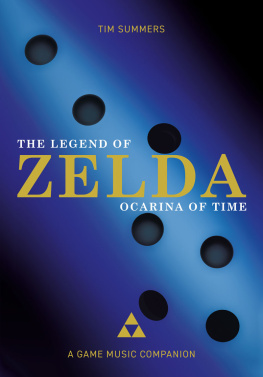
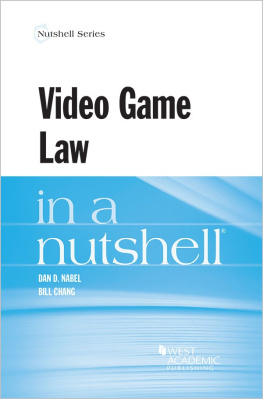


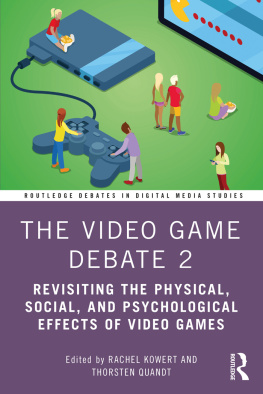
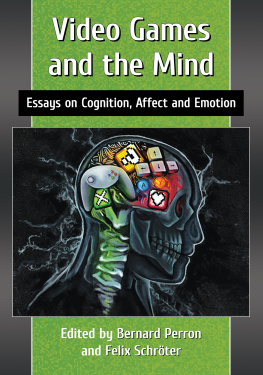

![Mark J. P. Wolf (editor) - Encyclopedia of Video Games: The Culture, Technology, and Art of Gaming [3 volumes]](/uploads/posts/book/279290/thumbs/mark-j-p-wolf-editor-encyclopedia-of-video.jpg)
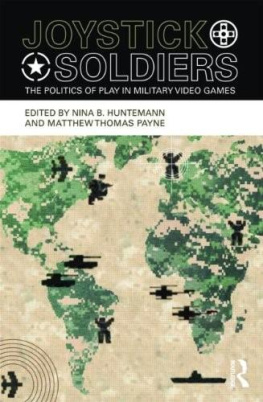
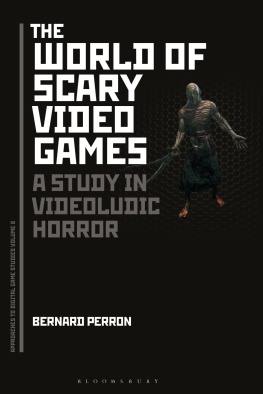
![Ethan Ham [Ethan Ham] - Tabletop Game Design for Video Game Designers](/uploads/posts/book/119417/thumbs/ethan-ham-ethan-ham-tabletop-game-design-for.jpg)

